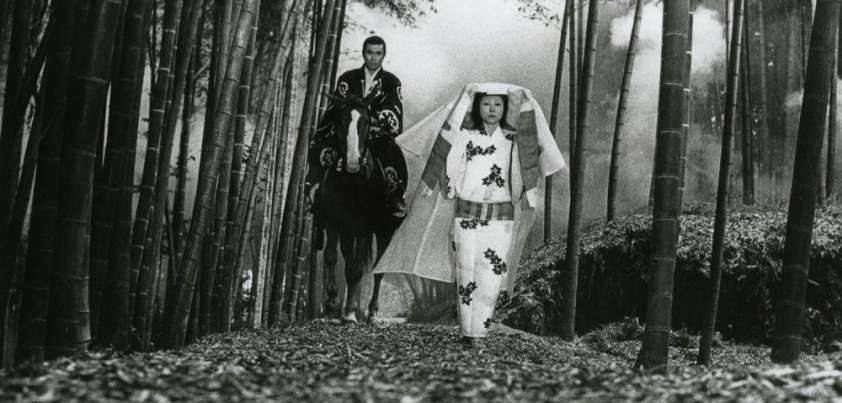 Ryūnosuke Akutagawa‘s In a Grove, published in 1922, is based on a classical Japanese tale first documented in the 12th century. It comprises seven accounts, including three confessions, relating to the death of a young Samurai. There are differences between each account, and none of the confessions are totally convincing. The story shares similarities with Ambrose Bierce’s Moonlit Road, published fifteen years earlier. Both stories feature unreliable narrators (including the spirit of the victim speaking through a medium) and leave readers to draw their own conclusions about the crime and identity of the killer. Who do you think did it?
Ryūnosuke Akutagawa‘s In a Grove, published in 1922, is based on a classical Japanese tale first documented in the 12th century. It comprises seven accounts, including three confessions, relating to the death of a young Samurai. There are differences between each account, and none of the confessions are totally convincing. The story shares similarities with Ambrose Bierce’s Moonlit Road, published fifteen years earlier. Both stories feature unreliable narrators (including the spirit of the victim speaking through a medium) and leave readers to draw their own conclusions about the crime and identity of the killer. Who do you think did it?
Original Text / PDF (3,440 words)
General Comments
A common theme of stories told from multiple viewpoints is the unreliability of recollections. We all see things differently, are often selective in how we relate them to others, and sometimes embellish or distort the truth to suit our purposes.
To me, the key to understanding the major theme of In a Grove is in the “confessions”. Only one of the three could have been the killer. It could even be that none of them did it, and Takehiko was killed by someone else (the woodcutter or priest?) after the others had left him tied to the tree. So why would they confess to something they did not do? In each instance, the answer is “honor”. In feudal Japanese culture, one of the most important things in life was to maintain and if possible enhance family honor.
Tajomaru admits to previous instances of rape and murder. He knows that he will be executed for these past crimes, and that there can be no extra punishment for his confession. His unlikely story of having released the Samurai from his bonds so as to face him in a fair fight will return some honor to his family.
Takehiko feels shame (especially as he is a Samurai) because he was unable to protect his wife and had to watch as she was violated. For him, suicide is the only culturally acceptable way to atone for this and maintain family honor.
A further theme is introduced in Masago’s confession: victim blaming. Real or imagined, she sees this in Takehiko’s expression: The flash in his eyes was neither anger nor sorrow… only a cold light, a look of loathing… Beneath the cold contempt in his eyes, there was hatred. The poor woman was an innocent victim, but the blame in her husband’s eyes convinced her that the only honorable path for both of them is murder-suicide.